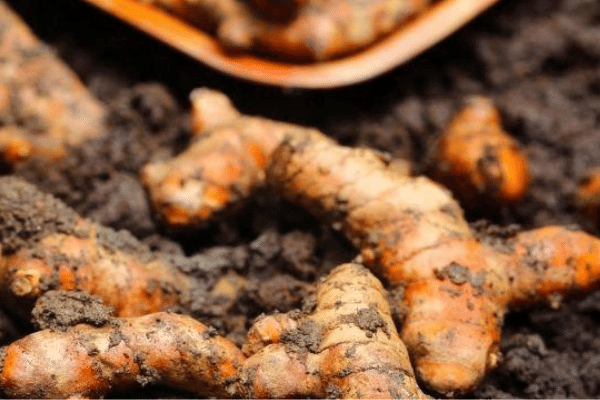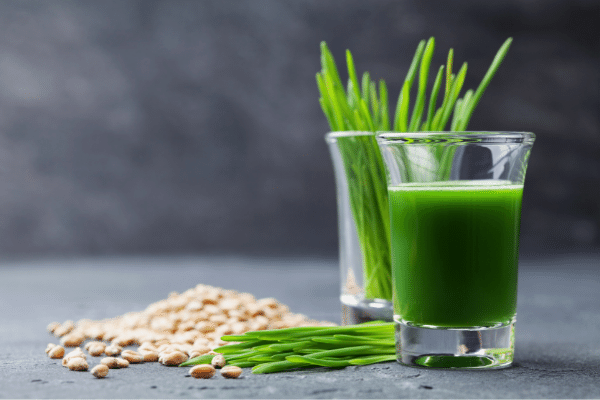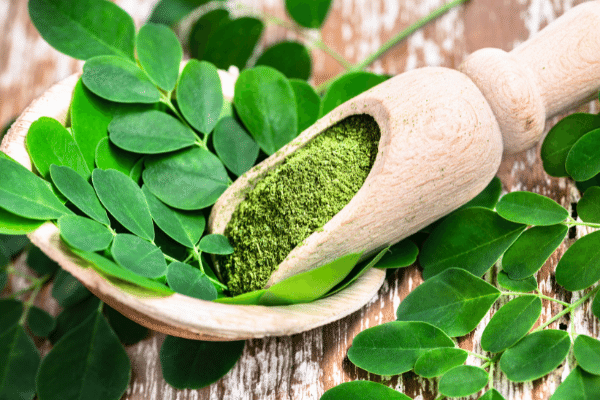

Unlike other turmeric variants, Lakadong turmeric is known to be highly potent as a result of its high curcumin content. Before delving in deep into the health benefits of Lakadong turmeric, here a key health benefits associated with this spice:
Anti-inflammatory: Inflammations are the body’s natural way of fighting against external agents. And, given today’s fast-paced, and sedentary lifestyle, the surge in environmental pollution, chronic inflammations have become quite common. Since ancient times, turmeric has acclaimed a key position as an anti-inflammatory agent for preventing, and managing inflammations. And, this attribute of turmeric still holds true in today’s time as well. The orange-hued pigment curcumin is the key behind the turmeric’s robust anti-inflammatory properties. There are certain studies and research that cite its efficacy. The best part is that turmeric can be consumed in whole, or ground form, can be consumed with food and applied externally as a paste to aid in fighting inflammation. Unlike other pharmaceutical medicines, turmeric does not have any side effects or risk factors.
Antioxidants: Antioxidants are referred to as the compounds in food that are known to help prevent cellular damage by free radicals. Free radicals are scavengers in the body that may negatively impact the cells if they go unchecked. Under optimal health conditions, the human body naturally removes normal levels of free radicals. However, the surge in pollution when combined with an unhealthy diet, and inappropriate lifestyle choices may increase free radicals in our bodies quite significantly, which can further lead to most modern lifestyle diseases, such as cancer, heart disease, Parkinson’s disease, epilepsy, asthma, arthritis, psoriasis, Alzheimer’s, diabetes, etc. Free radicals are the ones to blame, so we definitely want to keep them in check.
Antioxidants play a pivotal role in removing the free radicals whilst, at the same time, enhancing the natural antioxidant abilities of our own bodies. This can even slow down the aging process, whilst keeping numerous illnesses at bay.
Turmeric is said to be a plant-derived spice with one of the highest levels of antioxidant power. Studies reinstate that the curcuminoids in turmeric are very effective at finding and neutralizing free radicals. It is also thought that turmeric can help to prevent the development of free radicals up to a certain extent. Thus, the regular use of turmeric in our daily lives (preferably along with other healthy lifestyle choices) can put us on track towards overall better health, and well-being.
Anti-depressant: Turmeric and depression may seem like an odd match. However, you would be astounded to discover the robust capabilities of turmeric in preventing the onset of depression and in its optimal management. As we have already covered earlier in this article, turmeric is proven to be rich in antioxidants and anti-inflammatory properties. These two attributes go a long way in keeping oxidative stress at bay, which is known as a key cause of depression. At any time, it’s the ultimate substitute for antidepressant medications. Depression-preventing medications come with their own set of cons, side effects, and risk factors. Long-term use of antidepressants may even impact other body organs. Amidst all this, turmeric is the ultimate choice as it is a natural spice and does not have chemical additives and thus doesn’t have side effects. Thus, a regular dosage of turmeric is recommended by healthcare and nutrition experts to keep the depression blues at bay.
Vital for Alzheimer’s Disease Prevention: Compared to the past decade, there is an ever-growing trend in neurological disorders, especially Alzheimer’s. A buildup of a protein called amyloid-beta is the prime culprit behind Alzheimer’s. So, you might be wondering about the connection between Alzheimer’s and turmeric. Well, here comes the role of the curcumin compound in turmeric. Studies have shown that curcumin has the ability to cross the blood-brain barrier and clear the accumulation of amyloid-beta and thus can be beneficial in preventing the condition altogether. Besides, curcumin is also known to reduce neurotoxicity caused by metals in the brain, which is a common factor for Alzheimer’s condition.
Here’s a quick list of other key health-aiding attributes of Lakadong turmeric.

Wheatgrass is the name of the young grass of a wheat plant. It is a thick, dry grass that looks like hay or straw but is bright green. It plays a role in natural and holistic medicine, and it may have some specific health benefits.
Like many plant-based products, wheatgrass contains ingredients Trusted Source that act as antioxidants. These antioxidants may offer health benefits similar to many other plant-based foods.
As the body carries out natural processes, it produces toxic byproducts. If the toxins remain in the body, oxidative stress can result. High levels of oxidative stress can lead to various health problems, including cancer. Antioxidants help the body to eliminate these toxins.
Antioxidants help fight chronic inflammation, which occurs when the immune system reacts to an unwanted substance. When the body mistakenly reacts to something that is not a threat, some health issues may arise. Rheumatoid arthritis, type 1 diabetes, and psoriasis are all examples of autoimmune diseases.
Examples of antioxidants include vitamins, such as A, C, and E.
How can antioxidants benefit our health? Find out here.
Some scientists trusted Source says that wheatgrass has a similar structure to hemoglobin. Hemoglobin is a protein that carries oxygen around the body. For this reason, they argue, wheatgrass can boost oxygen supply to the blood.
It contains enzymes that have antioxidant properties that can help prevent oxidative damage to the DNA.
In 2017, these scientists applied a wheatgrass preparation to mouth cancer cells (oral squamous cell cancer) in a lab. They found that the growth of cancer cells slowed down. They proposed that wheatgrass may one day form the basis of a drug to treat this type of mouth cancer.
Other studies have reached similar conclusions. One 2015 study, for example, found that wheatgrass slowed the growth of colon cancer and caused some cancer cells to die.
Authors of a 2015 mouse study trusted Source concluded that wheatgrass might help defend the body against leukemia, especially in those who are at risk due to benzene exposure. The researchers believe that the flavonoids and polyphenolic compounds in the plant’s methanol content may help prevent leukemia from developing in bone marrow cells.
Wheatgrass may also improve the effects of chemotherapy, according to a 2015 review. The researchers found evidence that when used alongside chemotherapy, wheatgrass may:
Some 2015 research found that wheatgrass can kill or slow the growth of certain infections. This can be especially helpful in treating antibiotic-resistant infections, or people who are allergic to specific antibiotics.
The researchers published the results of an experiment carried out in a test tube. The findings indicated that wheatgrass has antimicrobial properties that can fight:
Lactobacillus bacteria play a role in many infections, including dental infections.
Practitioners of traditional medicine have long used wheatgrass to reduce stomach pain and manage minor gastrointestinal problems, such as diarrhea or digestive problems.
Wheatgrass has high fiber content, and fiber helps to keep the gut healthy.
Authors of a 2014 reviewTrusted Source suggested that wheatgrass may help treat ulcerative colitis, an inflammatory condition that affects the large intestine. In a small study of 23 participants, some people consumed 100 milliliters (ml) wheatgrass juice daily for a month while others took a placebo.
People have used wheatgrass as a traditional medicine to treat type 2 diabetes, and some scientists have found evidence that it may help.
A 2016 study on rats, for example, found that wheatgrass raised insulin levels and helped lower blood glucose.
Experts believe that inflammation plays a role in diabetes. By fighting inflammation, wheatgrass may also help people manage both diabetes and some of its complications.
Compared with those who took the placebo, those who consumed wheatgrass juice experienced:
Obesity is a major risk factor for diabetes. Together with high blood pressure, high cholesterol, and other health problems, they make up a condition that doctors call metabolic syndrome. Metabolic syndrome usually starts with obesity. Scientists believe that inflammation plays a key role.
A mouse study published in 2014 suggested that wheatgrass might help treat obesity. Mice who consumed wheatgrass extract gained less weight and had fewer obesity-related complications than those who did not.

Moringa oleifera is a plant that is often called the drumstick tree, the miracle tree, the ben oil tree, or the horseradish tree.
Moringa has been used for centuries due to its medicinal properties and health benefits. It also has antifungal, antiviral, antidepressant, and anti-inflammatory properties.
Moringa contains many healthful compounds such as:
It is also extremely low in fats and contains no harmful cholesterol.
Moringa is believed to have many benefits and its uses range from health and beauty to helping prevent and cure diseases. The benefits of moringa include:
Moringa seed oil is beneficial for protecting hair against free radicals and keeps it clean and healthy. Moringa also contains protein, which means it is helpful in protecting skin cells from damage. It also contains hydrating and detoxifying elements, which also boost the skin and hair.
It can be successful in curing skin infections and sores.
Edema is a painful condition where fluid builds up in specific tissues in the body. The anti-inflammatory properties of moringa may be effective in preventing edema from developing.
Moringa appears to protect the liver against damage caused by anti-tubercular drugs and can quicken its repair process.
Moringa extracts contain properties that might help prevent cancer developing. It also contains niazimicin, which is a compound that suppresses the development of cancer cells.
Moringa extracts might help treat some stomach disorders, such as constipation, gastritis, and ulcerative colitis. The antibiotic and antibacterial properties of moringa may help inhibit the growth of various pathogens, and its high vitamin B content helps with digestion.
Due to its antibacterial, antifungal, and antimicrobial properties, moringa extracts might combat infections caused by Salmonella, Rhizopus, and E. coli.
Moringa also contains calcium and phosphorous, which help keep bones healthy and strong. Along with its anti-inflammatory properties moringa extract might help to treat conditions such as arthritis and may also heal damaged bones.
Moringa is thought to be helpful in treating depression, anxiety, and fatigue.
The powerful antioxidants found in Moringa extract might help prevent cardiac damage and has also been shown to maintain a healthy heart.
Extract of moringa has been shown to help wounds close as well as reduce the appearance of scars.
Moringa helps to reduce the amount of glucose in the blood, as well as sugar and protein in the urine. This improved the hemoglobin levels and overall protein content in those tested.
Moringa may help reduce the severity of some asthma attacks and protect against bronchial constrictions. It has also been shown to assist with better lung function and breathing overall.
People may be less likely to develop stones in the kidneys, bladder or uterus if they ingest moringa extract. Moringa contains high levels of antioxidants that might aid toxicity levels in the kidneys.
Moringa contains isothiocyanate and niaziminin, compounds that help to stop arteries from thickening, which can cause blood pressure to rise.
Moringa contains eyesight-improving properties thanks to its high antioxidant levels. Moringa may stop the dilation of retinal vessels, prevent the thickening of capillary membranes, and inhibit retinal dysfunction.
Moringa might help a person’s body absorb more iron, therefore increasing their red blood cell count. It is thought the plant extract is very helpful in treating and preventing anemia and sickle cell disease.
© 2024 Woahganics. All Rights Reserved.
Privacy Policy | Terms & Conditions